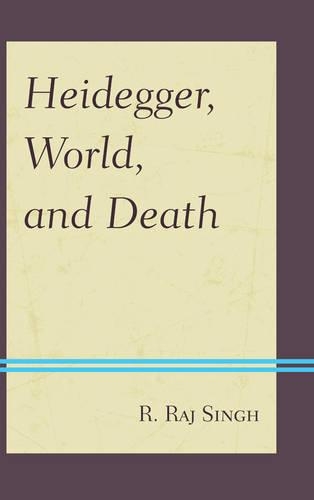
Heidegger, World, and Death
(Paperback)
Publishing Details
Heidegger, World, and Death
By (Author) R. Raj Singh
Bloomsbury Publishing PLC
Lexington Books
27th March 2015
United States
Classifications
Professional and Scholarly
Non Fiction
Philosophy of mind
193
Physical Properties
Paperback
164
Width 153mm, Height 228mm, Spine 12mm
249g
Description
The book offers an elucidation of two of the most important themes in Martin Heideggers early as well as later philosophical writings. These perennial themes of his thought, namely, the concept of the world and his existential analysis of death, are explored as the ongoing philosophical problems grappled by this important thinker of the twentieth century within all periods of the body of his entire work. These themes are closely related to the fundamental issue of Heideggers thought namely the question concerning the meaning of Being for which a proper elucidation of the world-concept and death is absolutely crucial. Since this book considers all the important phases of Heideggers thought along with all the important ongoing conceptual preoccupations of this thinker along with his original analyses of human existence and the world, the notion of the ground, art and artworks, language, dwelling, and death, it can serve as a substantive introduction to the philosophy of Martin Heidegger.
Reviews
Heidegger is often considered a hopelessly abstract, esoteric and somehow wordless thinkera treatment which sharply conflicts with his depiction of human existence as 'being-in-the-world.' At the same time, he is sometimes seen as a morose existentialist due to his concern with 'being-toward-death.' Raj Singh's capable study corrects these misreadings by showing the constitutive role of 'world' in all of Heidegger's writings and also the crucial role of death-contemplation and anticipation as a sustaining penumbra of human life. An additional accomplishment is the demonstration of the continuity of Heidegger's work notwithstanding important 'turns' and transformations. -- Fred Dallmayr, University of Notre Dame
Author Bio
R. Raj Singh is professor of philosophy at Brock University, St.Catharines, Ontario, Canada. He is the author of Bhakti and Philosophy (Lexington Books, 2006), Death, Contemplation and Schopenhauer (Ashgate, 2007), Schopenhauer: A Guide for the Perplexed (Continuum, 2010).
